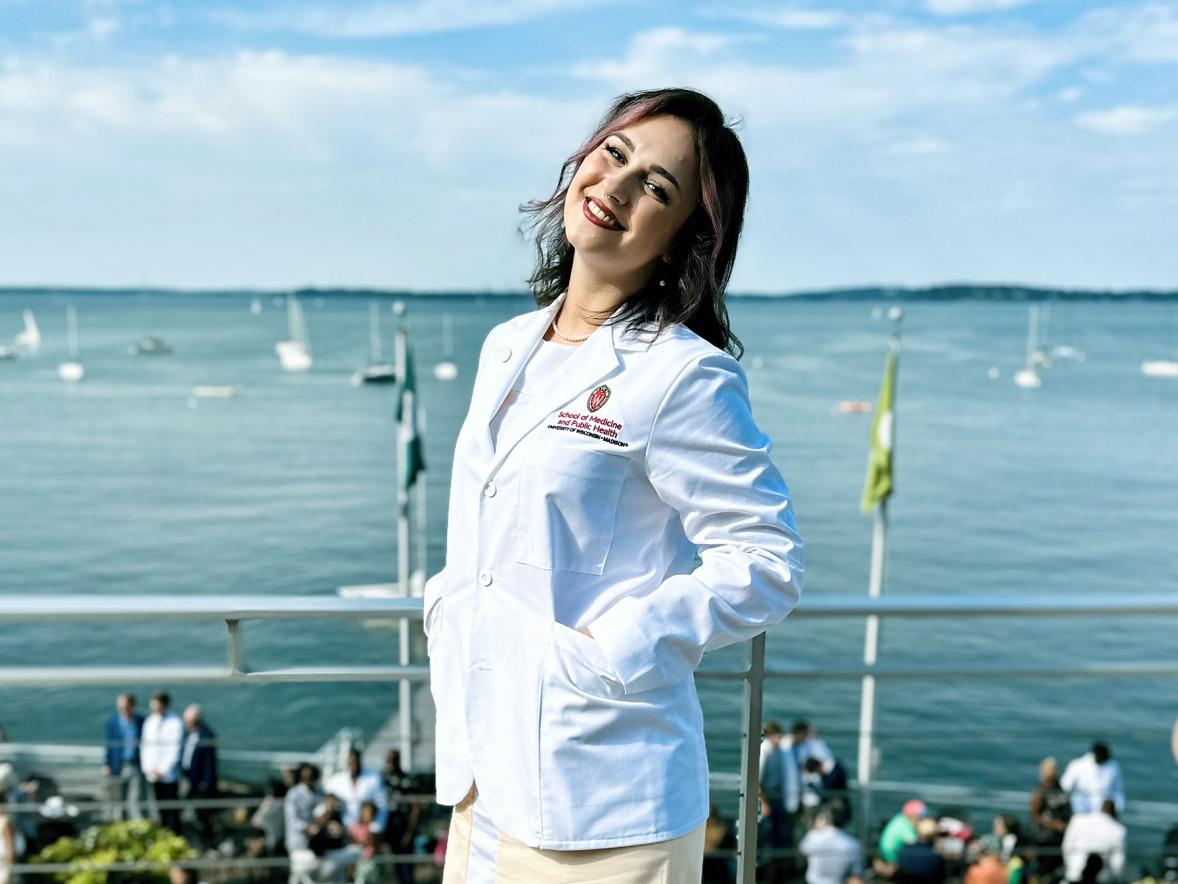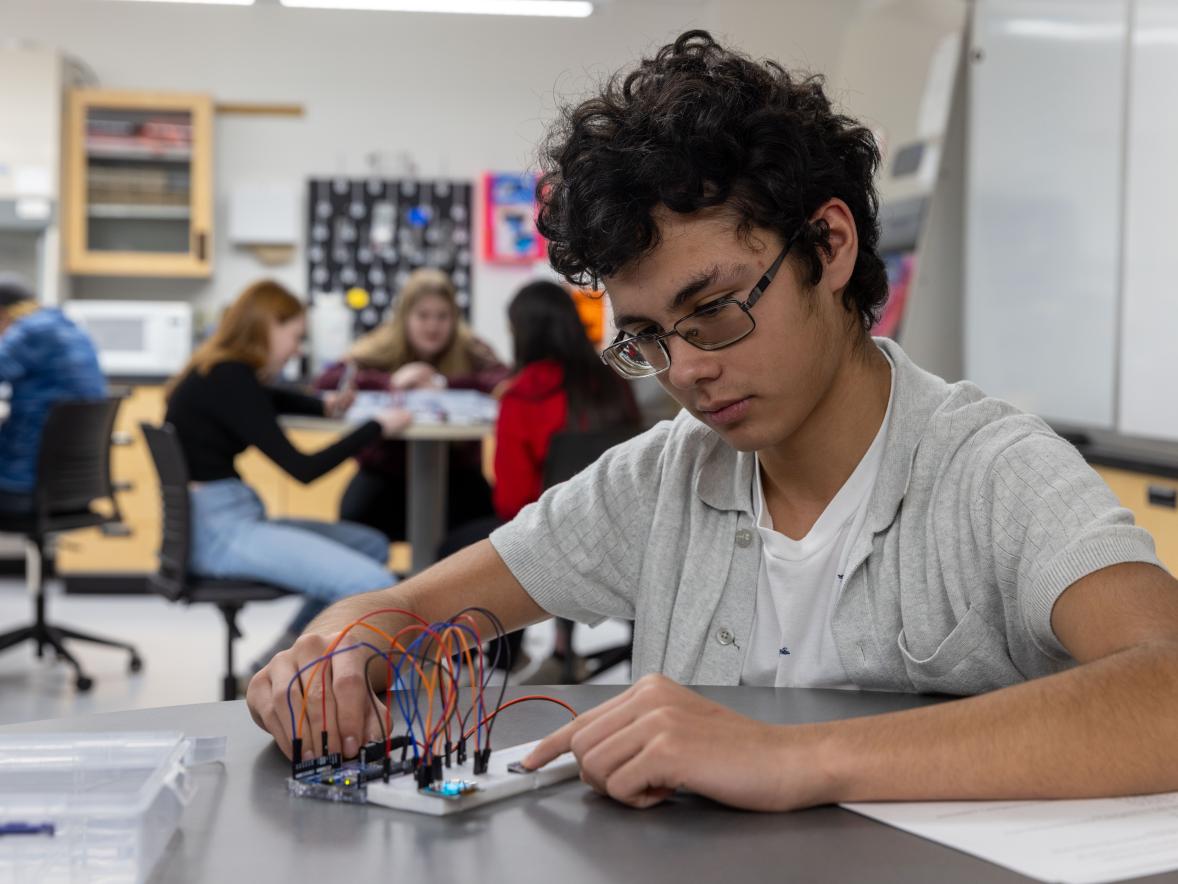As an emergency room technician at Regions Hospital in St. Paul, Minn., Craige McConnell assists physicians, physician assistants and nurses with direct patient care in the triage area.
Working at Regions, a level one trauma center, McConnell sees patients with injuries from broken bones to gunshot wounds, stabbings and car accidents. He also serves on the front line of the battle against COVID-19.
“I take and monitor vital signs, blood pressure, pulse and oxygen levels and clean and dress wounds,” McConnell said. “I restock carts and clean and prepare rooms. I perform electrocardiograms to check for heart conditions and collect laboratory samples. I assist with resuscitation and perform CPR and emergency airway procedures.
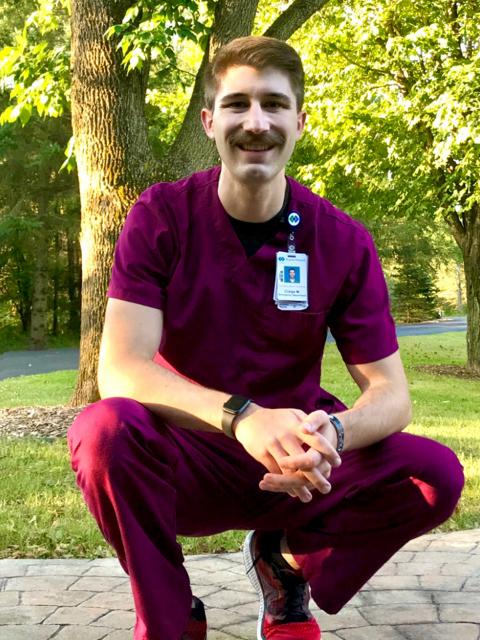
“I also see quite a few mental health patients, as well as chronic drug and alcohol abusers, which definitely falls under the mental health aspect of the job,” he said.
McConnell, whose father is a physician assistant, has always had an interest in science. He discovered his interest in health care, both the physical and mental health aspects, after a cousin’s suicide in 2011.
A prehealth track to be a physician assistant
After high school, McConnell attended Century College in White Bear Lake, Minn., but he felt out of place. “A few of my high school friends were attending UW-Stout and told me great things about it,” he said. “I decided to apply, and I loved the feel of the campus when my friend gave me a tour.”
McConnell started at UW-Stout in the applied science program. Then, at the start of his junior year, a new major was announced – applied biochemistry and molecular biology. The ABMB major offers prehealth tracks to prepare students for medical school and other health care fields. Knowing he wanted to be a physician assistant, switching majors was a no-brainer for McConnell.
“I knew that I wanted to go into medicine before I came to Stout, but I really started to focus on physician assistant programs thanks to the ABMB courses,” McConnell said. “My favorite experience was the Cadaver Dissection course with Dr. Alexandra Hall. I was thrilled to learn about anatomy in such a hands-on way.”
“Craige would often seek additional classes, such as anatomy and physiology, that strengthened his skills in human medicine, though many were not required in his major,” said ABMB Program Director Jim Burritt, who served as McConnell’s academic adviser.
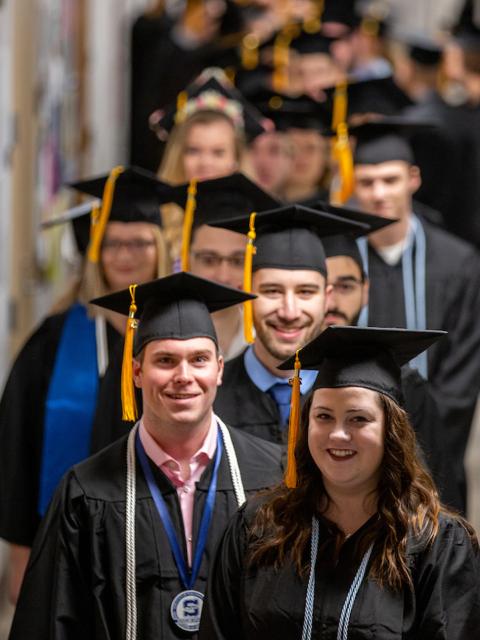
McConnell received his Emergency Medical Technician license through an accelerated six-week program at Century College in July 2018. He graduated from UW-Stout with his ABMB degree in December 2019, and was one of the first five graduates of the program.
“I remember that our program was the first to walk across the stage. I felt real pride to be able to graduate with a degree that had such a small group compared to other majors,” he said.
Physician assistant training
McConnell started at Regions as an emergency room technician in May 2019, after applying for the position to fulfill his cooperative experience as part of his ABMB degree. He stayed on after graduation.
He’s applying to physician assistant programs around the country for the 2021 academic year. Many of the ABMB prehealth track courses are prerequisites for physician assistant programs, and he’s applying his skills and knowledge in anatomy and physiology, biochemistry, microbiology and medical terminology to his work at Regions.
“I want to be able to be a primary care provider for patients,” McConnell said. “My current role is definitely a stepping-stone career, as most PA programs require a minimum of 1,000 hours of direct patient care experience before consideration of acceptance to the program.”
Physician assistant programs are a condensed version of medical school, McConnell explained. The whole program is two to three years. And many courses have six months to a year of clinical experience.
During that time, McConnell will most likely take a hiatus from his health care career at Regions to focus on school, as recommended by professionals he works with and his dad.
Fighting COVID-19 at Regions Hospital
McConnell’s roles as an emergency room technician have not changed since the start of COVID-19. But the amount of personal protective equipment he wears has changed drastically. He prepares himself for each shift with a few quiet minutes in his car, reading a passage from the Bible and saying a quick prayer “to clear my mind before stepping into the chaos.”
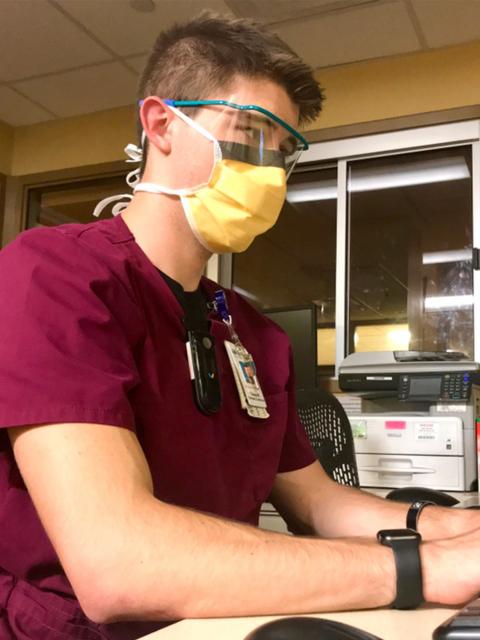
“For the entire eight to 12-hour shift, a mask and eye protection are worn at all times. I wear a disposable gown and face shield anytime I come in contact with a COVID rule-out patient, which is dozens per day,” McConnell said.
“My co-workers and myself are definitely getting burnt out with the amount of extra protection we have to wear in order to keep our patients safe. It takes time to correctly don PPE – time that could be spent doing other vital tasks,” McConnell explained. “It does not, however, change the level of care that our patients receive.”
McConnell has noticed his patients are more scared than before COVID-19 started. And for the first months of the pandemic, McConnell and his dad quarantined in the basement of their house in Lakeland, Minn., away from his mom and twin brother.
He knows the best steps we can take to protect ourselves and others is to socially distance, wash our hands frequently, wear a mask and encourage others to do the same.
“I face new extreme challenges every day,” McConnell said. “I overcome my challenges thanks to my training, education, and most importantly, the incredible co-workers that I have surrounding me and backing me up.”
The highlights of McConnell’s days are the simple thanks from patients leaving the ER. “It is the reason I want to pursue a career as a PA – to have an even greater impact on the people under my care,” McConnell said.
“Craige continues to make his alma mater proud as he has taken his Stout degree to make the world a better place,” Burritt said. “He sees the good in people and situations and has worked hard to develop his skill in human medicine. His choice in a career as a physician assistant seems a fitting way in which his passion, drive for continued learning and devotion to others will find fruition.”





